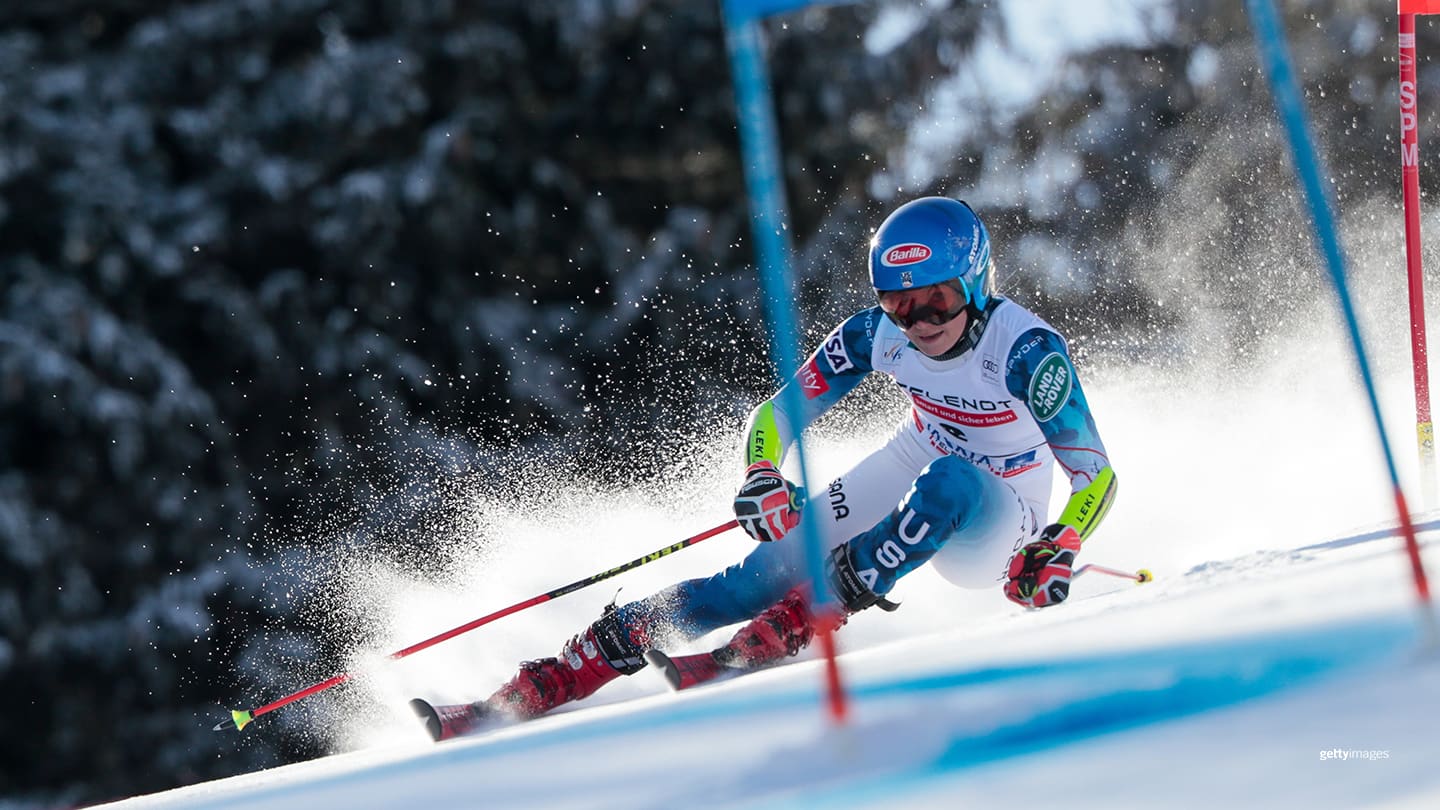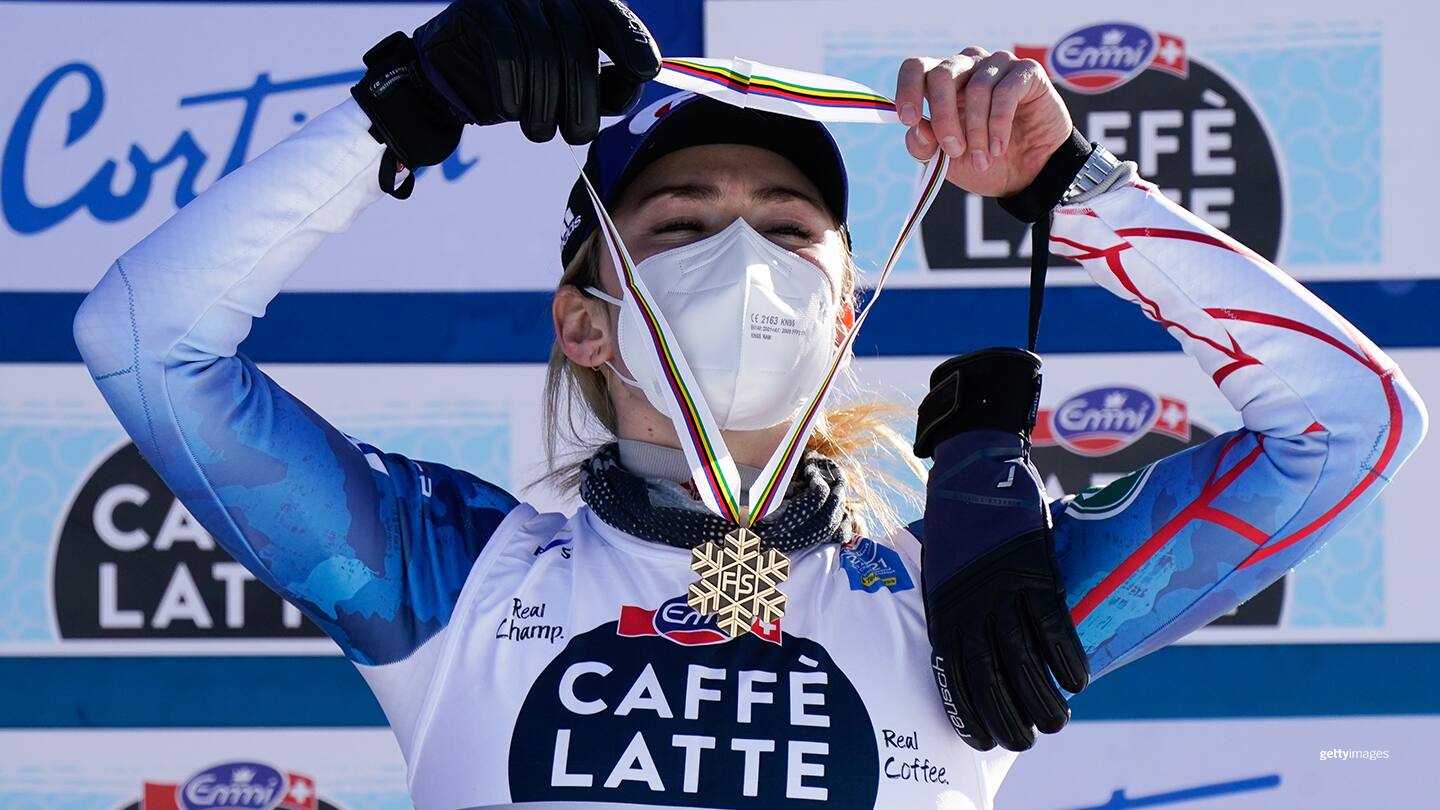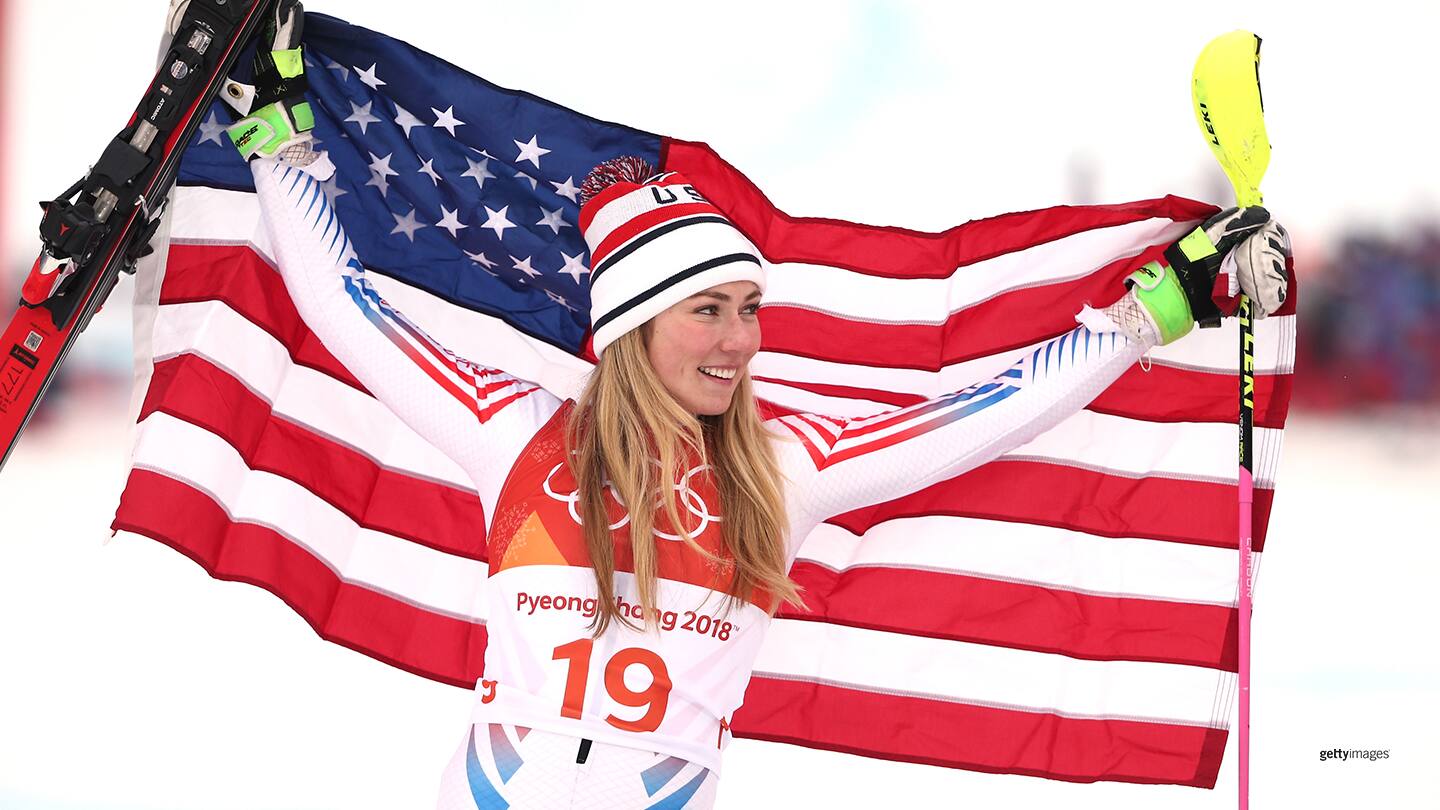
What Will Mikaela Shiffrin Focus On This Season — Winning Medals In 5 Olympic Races Or Reclaiming The World Cup Overall Title?
by Peggy Shinn

Mikaela Shiffrin competes during the women's giant slalom at the Audi FIS Alpine Ski World Cup on March 7, 2021 in Jasna, Slovakia.
Mikaela Shiffrin kicks off her 11th season competing on the FIS Alpine World Cup tour this weekend with the traditional season-opening giant slalom race in Soelden, Austria. It’s a race that she has won once and finished on the podium four other times.
Shiffrin would like to one day regain the overall world cup title, given to the skier who accumulates the most points by season’s end. She held it for three consecutive years, from 2017-2019.
And in an ideal world — with no weather delays or other snafus — she would also like to compete in the five individual women’s alpine races at the Beijing Olympic Winter Games 2022 in February.
Can the 26-year-old alpine skiing phenom accomplish it all this winter?
Perhaps.
“I’m dreaming about being able to compete in each event in China,” Shiffrin said in a virtual press conference last week. “But that means I have to do a lot more preparation — understanding how that is going to affect me mentally and physically throughout the three weeks that we’re there.”
As for the overall world cup title, Shiffrin understands the challenge, particularly as more of her competitors have upped their game to compete with her. With 34 women’s races on the world cup tour — from Shiffrin’s specialties of slalom and GS, the speed events of super-G and downhill, and parallel races, but not including required training runs for downhill races and also not including the Olympic races — it’s a demanding schedule.
Each race requires travel across two continents (sometimes quickly overcoming jetlag and the exhaustion of travel delays), then gathering the requisite focus and intensity to ski steep, icy courses where the threat of injury looms. The mental and physical load accumulates, perhaps exponentially, as the season stretches from October to March.
Last season — a difficult one as Shiffrin tried to regain equilibrium after the tragic death of her father in February 2020 and also deal with coronavirus pandemic restrictions — she mostly raced tech events (slalom and GS) and finished fourth in the overall standings.

Mikaela Shiffrin celebrates winning the women's slalom bronze medal at the FIS Alpine Ski World Championships on Feb. 20, 2021 in Cortina d'Ampezzo, Italy.
This season, she plans to again race a few speed races, which should help her tally more points toward the overall title.
“There’s never going to be a guarantee that I can win it again, and it’s such a long and strenuous race to stay in the points to actually earn the overall goal,” Shiffrin stated with her trademark honesty. “It’s really hard to say if that’s even a realistic goal for this season or ever again in my career.”
But after a more normal off-season — compared to last year where the U.S. skiers missed a lot of on-snow training due to the pandemic and where Shiffrin spent most of her time learning the fiscal responsibilities once managed by her father and dealing with estate issues after his death — Shiffrin has had a higher volume of training.
“As we saw last year,” she said, “I really can’t go without that and have a hope of winning races.”
With speed events back on her radar, Shiffrin is eyeing the downhill and super-G races in Lake Louise, Alberta, after the Killington World Cup over Thanksgiving weekend.
After that, Shiffrin and her team will pick and choose races, or as Shiffrin says, “take it day by day to figure out where I actually am, where I want to go, and how that really fits or realistic that is.”
“Ideally, I’ll be running a similar schedule to what I have done in years prior to last season,” she added. “But we’ll have to see how that goes because it’s definitely a lot.”
Going to Beijing in early February — her third Olympic Games — Shiffrin has to consider the toll that a heavy world cup schedule will take on her mentally and physically. At the same time, she wants to race as much as she can.
“My best bet at success [at the Beijing Games] is to have some success prior and to feel strong and hopefully somewhat rested,” she said.
At the Olympic Winter Games PyeongChang 2018, she planned to race all five events (slalom, GS, super-G, downhill, and combined — a race that will likely be discontinued after the 2022 Games), and she was a contender to win medals in all of them. But weather delays caused the GS, slalom, and super-G to be run on back-to-back days, with no rest or training in between.
Shiffrin won the GS, then fatigue derailed her plan to defend her slalom Olympic gold medal the next day. She withdrew from the super-G, then a week later, won silver in the combined. It was a triumph to win two Olympic medals, but expectations — both Shiffrin’s and her fans’ — had been for much more.

Mikaela Shiffrin celebrates on the podium during the women's alpine combined at the Olympic Winter Games PyeongChang 2018 on Feb. 22, 2018 in PyeongChang, South Korea.
“I definitely walked away [from the 2018 Olympic Winter Games] with my eyes wide open after that,” she said.
Now she knows that she can be completely prepared to compete at the Olympic Games, but variables out of her control can derail her dream.
“So yeah, I don’t really love that idea because I tend to l like to be super controlling over everything that’s happening in my life, so it’s like nail on a chalkboard to me,” she admitted. “It’s more like gambling than racing at this point. But we’ll see.”
Having won big races in every event — from slalom to downhill — Shiffrin will be a medal favorite in every race she enters this season. This could put enormous pressure on her, especially at the 2022 Beijing Games.
To explain how this pressure affects her, she looked to swimmer Caeleb Dressel, who won five gold medals at the Olympic Games Tokyo 2020 this past summer. In what should have been a highlight of his career, Dressel confessed that he felt uncomfortable most of the time.
“You would hope going to the Olympics, this great event, the highlight of my career, that it’s going to be great, and I’m going to feel the best that I possibly could feel, this is going to be the peak of my career,” said Shiffrin. “More often than not, it’s very uncomfortable the entire time.”
When asked to pick which is more important to her — winning more Olympic medals or another world cup title — Shiffrin was again contemplative.
“I don’t know if I could prioritize skiing all events at the Olympics over the overall globe,” she admitted. “I’d probably be far more disappointed in my season if I had essentially skied slowly or not stacked up for any of the world cup races but somehow won an individual or multiple medals at the Olympics.
“Because luck sways the Olympic results so much more than it does in any normal world cup. I don’t like the idea that my results are based of luck.”
Instead, she relies on her work ethic.
“Having a really strong preparation for the season is always our goal,” she said. “If you accomplish that, then you can keep that momentum going through the season. Then that really is your actual best preparation for the Olympics.”